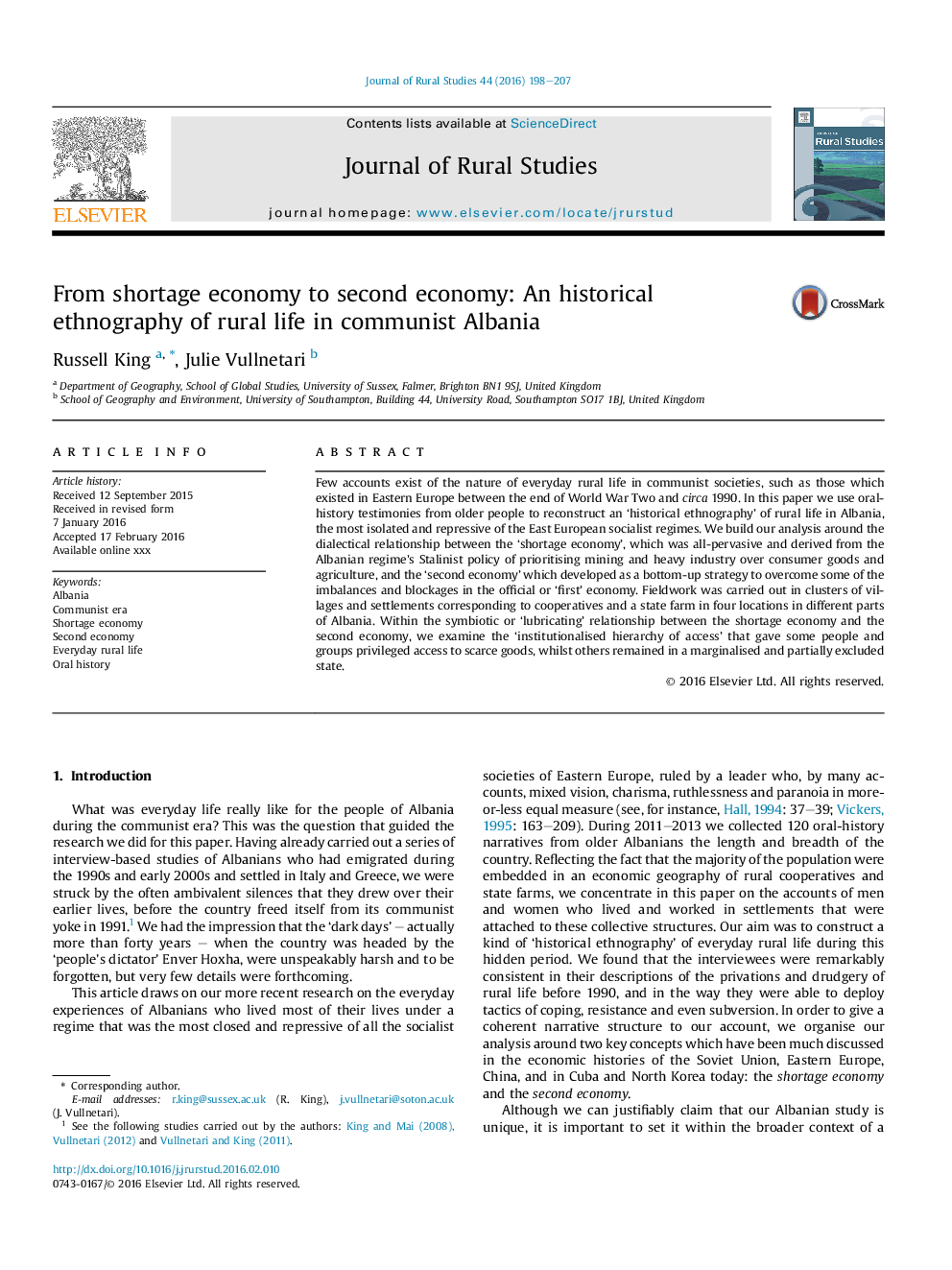| Article ID | Journal | Published Year | Pages | File Type |
|---|---|---|---|---|
| 6545472 | Journal of Rural Studies | 2016 | 10 Pages |
Abstract
Few accounts exist of the nature of everyday rural life in communist societies, such as those which existed in Eastern Europe between the end of World War Two and circa 1990. In this paper we use oral-history testimonies from older people to reconstruct an 'historical ethnography' of rural life in Albania, the most isolated and repressive of the East European socialist regimes. We build our analysis around the dialectical relationship between the 'shortage economy', which was all-pervasive and derived from the Albanian regime's Stalinist policy of prioritising mining and heavy industry over consumer goods and agriculture, and the 'second economy' which developed as a bottom-up strategy to overcome some of the imbalances and blockages in the official or 'first' economy. Fieldwork was carried out in clusters of villages and settlements corresponding to cooperatives and a state farm in four locations in different parts of Albania. Within the symbiotic or 'lubricating' relationship between the shortage economy and the second economy, we examine the 'institutionalised hierarchy of access' that gave some people and groups privileged access to scarce goods, whilst others remained in a marginalised and partially excluded state.
Keywords
Related Topics
Life Sciences
Agricultural and Biological Sciences
Forestry
Authors
Russell King, Julie Vullnetari,
